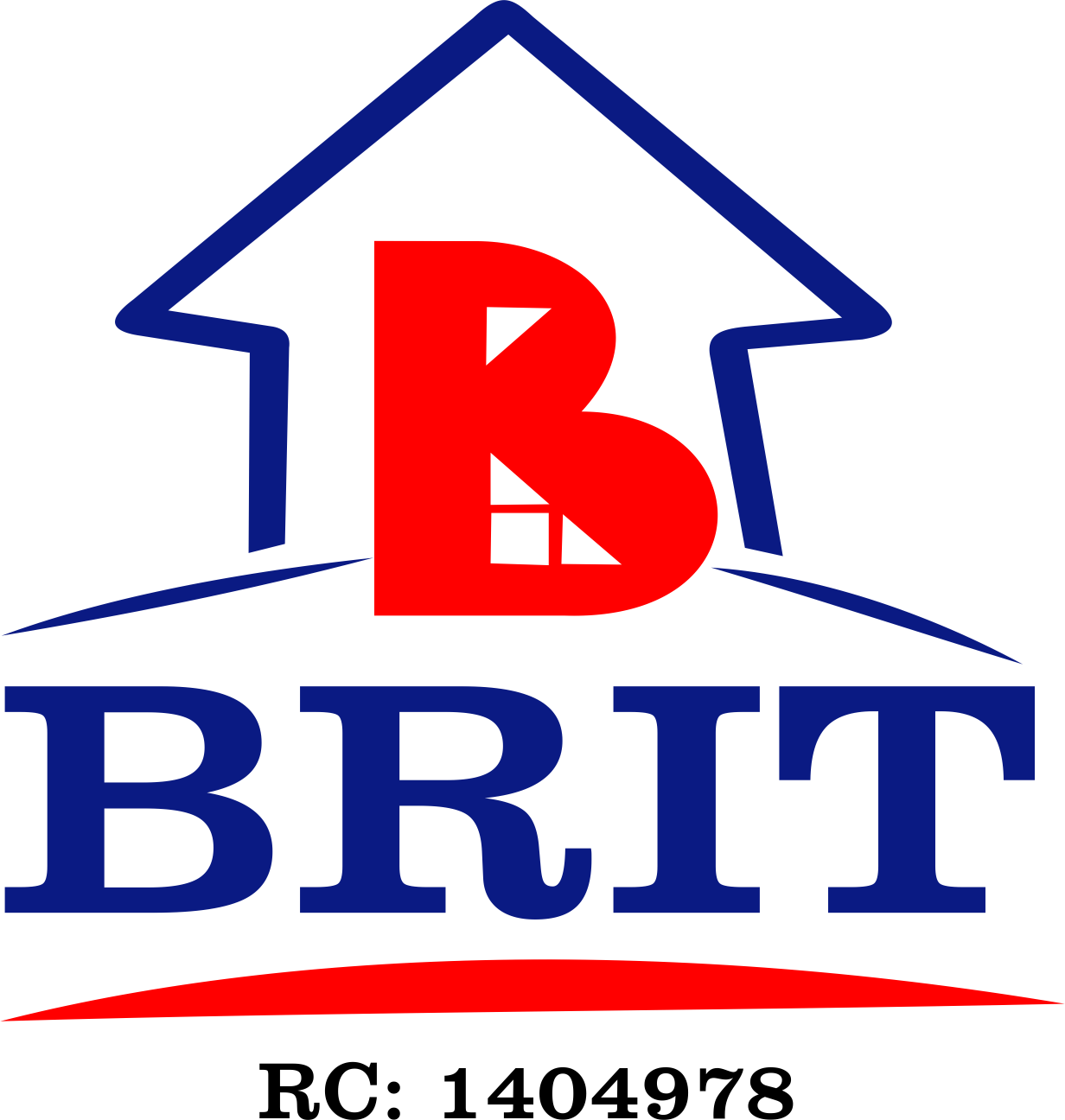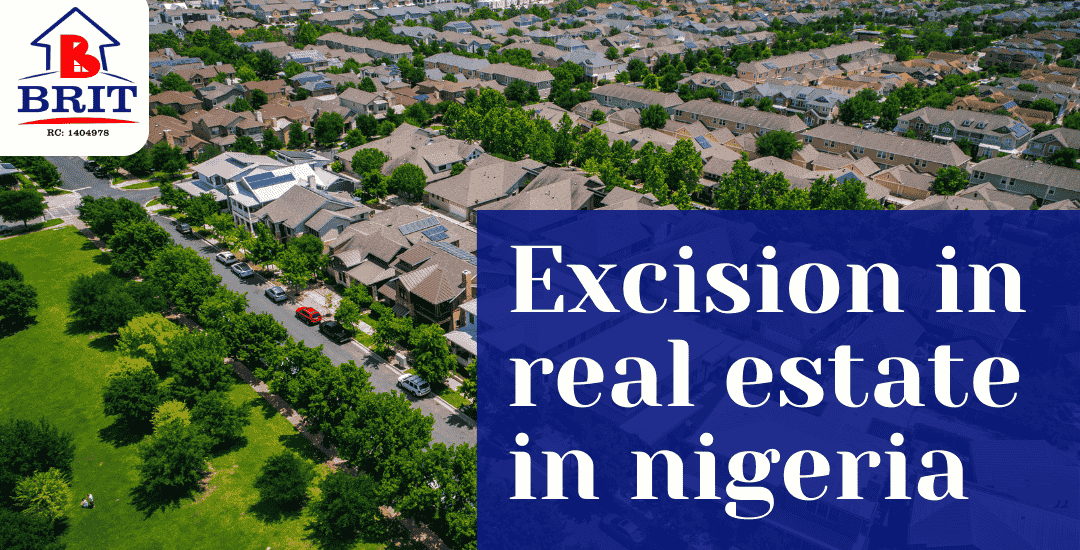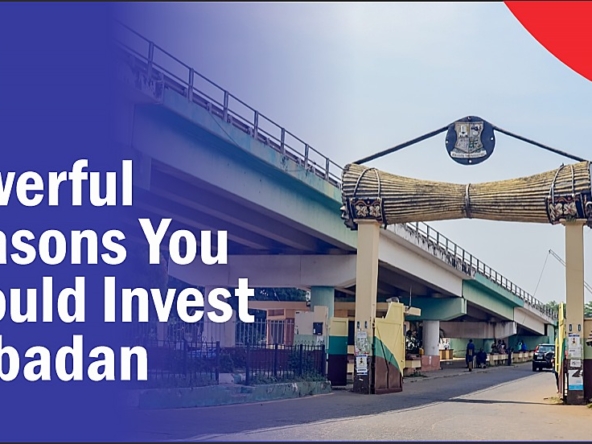5 Simple Facts About Excision in Real Estate in Nigeria
Excision is a key land title every investor should know. In many Nigerian towns, land is like the pride of the community. Picture this: a village with vast land stretching as far as the eye can see. Palm trees swaying, children running barefoot across sandy paths, and elders gathering under the iroko tree for evening discussions. That entire land belongs to the community, but by law, it’s technically under the government’s control.
This is where excision in real estate in Nigeria comes in.
Excision is simply the government saying to the community, “From all this land we’ve taken charge of, here’s a portion officially released back to you.” Think of it as the government cutting out a clear boundary and saying, “This land now belongs to your people.”
1. Excision in Real Estate in Nigeria Means Community Ownership Recognised
Imagine the Ajah community with thousands of hectares: Ajiwe, Ikota, Addo, Badore, etc. Before excision, the land is technically the government’s property, but the community occupies it. One day, the government took the whole hectare, but after a while, they returned Badore and Addo to the community and withheld Ikota, Ajiwe and the remaining land.
The land they returned to the community is called an excised land, while the ones the government held onto is called government acquisition land.
Once the excision is granted, that portion becomes officially recognised as belonging to that community.
It’s like the government giving them a “receipt” that says, “Yes, this land is now truly yours.”
1. Excision in Real Estate in Nigeria Means The Land Has Been Legally Released back To The Community
To really understand excision in real estate, you have to go back to the Land Use Act of 1978. That law put every single piece of land in Nigeria under the control of the state governor. In simple terms, it means no land truly belongs to anyone until the government decides what to do with it. That’s why you’ll often hear people say, “all land is under government acquisition.”
Now, this is where excision comes in. Excision is like the government saying to the original settlers of a community, “We recognise you, and we are officially releasing a part of this land back to you.” It’s a legal process where the governor carves out a specific portion of land and hands it back to the people who have lived on and owned it historically.
Once land has been excised, it is no longer under government acquisition. That means it’s safer for real estate transactions, safer for investors, and clearer for anyone who wants to build wealth through land. Without excision, buying land is like playing football without knowing the rules; you could get kicked out of the pitch at any time. But with excision in real estate, you’re playing on firm ground.
3. Excision in Real Estate in Nigeria Means The Government Is No More Interested In The Land
Now, let’s go back to our Ajah community. Remember, we said the land the Government returned to the community is called excised land. There is also something you need to know.
For the government to return the land to the community means they are not interested in the land either now or in the future, because they have used the land they wanted to use.
4. Excision in Real Estate in Nigeria Means The Land Is Free From Revocation.
One of the biggest fears people have when buying land in Nigeria is what if the government suddenly takes it back? And honestly, it’s a valid concern. Lands that are not excised are still under the government’s full control. That means if tomorrow they decide to use that land for a new highway, an airport, a market, or even a big housing project, the owners can lose everything just like that, no apology, no refund, nothing unless you have a C of O.
But here’s the beauty of excision in real estate in Nigeria: once a portion of land has been excised and gazetted, it’s like the government officially says, “We don’t need this land anymore. You’re free to use it.” From that moment, the land is protected under the law. The government cannot just wake up and revoke it. And if, for any reason, they absolutely must, they are legally bound to provide full compensation to the owners, just like a C of O.
In other words, excision gives you peace of mind. It removes the uncertainty. It means you’re not just buying sand and soil, you’re buying security. Your investment is safe from sudden government takeover, and that’s what every wise investor wants.
5. Excision in Real Estate in Nigeria Means It Must Be Approved by the Governor
One thing people often misunderstand about excision in real estate is that it doesn’t just happen on its own. It’s not automatic. A community has to formally apply for it, and even after the paperwork, the final decision still rests with the state governor, just like in the case of a C of O.
Think of it like getting a driver’s license. You may know how to drive, but until the government gives you that card, you’re technically not recognised on the road. In the same way, a community might be living on land for generations, but without the governor’s official approval, that land is still under acquisition.
The approval comes in the form of what’s called an Excision Gazette, a published record that says, “This portion of land is now legally released to the community.” That document is what gives the land its real legal standing.
Without that approval, the land remains risky. You could pay for it today, only for the government to step in tomorrow and use it for a road, airport, or housing project. That’s why every serious buyer or investor always checks if the land has been excised and gazetted. It’s the difference between buying peace of mind and buying into future trouble.
Let’s Wrap It Up
Excision in real estate means peace of mind. It protects your land from government revocation and gives you the security your investment deserves.
At Brit Properties, we deal only in lands that are carefully verified, secure, and positioned for profit because your future matters.
👉 Contact us today. A bright future begins with us.





